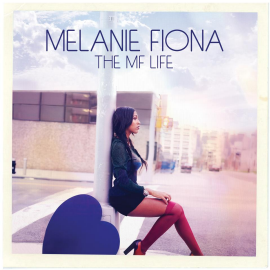Angel Olsen
Half Way Home
Disrupting easy chains of thought in the quiet of lovesick imaginations, embracing the stillness that other artists struggle through or can only deploy as brief stabs, Angel Olsen’s voice is backdrop, centre, above, cutting through melody and song and turning essence into fragments. Olsen’s voice, theoretically impossible to drown out as it swoons, wails and unreservedly calls, demands silence, sparseness, to be billowed out into late night/early morning air. Many of the selections on Half Way Home start out as structured songs before turning into poems, letters, beckoning instructions and appeals as stringed instrumentation strums and shakes. And within this changeable atmosphere is the age of unenlightenment, tired loneliness and its in-between forms. At one moment, Olsen sings of internalizing and failing to hide feelings, the next of how “we all soon disappear,” thoughts of love and thoughts of death beside each other, not as choices but in a relationship. The pinhole private view and space panoramic together. Whether in the back and forth from liquid crystal to quaver of “Safe in the Womb” or the unsummarizable “Free,” Olsen uses the simplest words, but carries them by voice to the wreckage of long-overflowed emotional sense.
The Soft Pack
Strapped
On their self-produced sophomore release, third if you count their days playing under the name the Muslims, the Soft Pack kick off with their stripped-down back-to-basics rock, but it’s clear that Strapped has the Soft Pack searching for something more refined. On the surface, the album isn’t drastically different than their scrappy self-titled debut, but it’s not predictable. With the sturdy groove of the opening track “Saratoga” and jangling guitar hooks of “Second Look,” both tracks could have easily slotted onto their debut. It is the Julian Casablanca-esqe “Bobby Brown” that starts to show the band’s aspirations to go farther afield from their trademark do-or-die garage rock; vintage synths and ‘90s R&B production preview the weirdness of side B. As the band starts to delve into more uncharted territory, they begin to unnecessarily slow their songs down, causing Strapped to stumble. The band has one of the best rhythm sections in all of garage rock, and it’s a shame when they don’t push the BPM on their 30-minute albums. Strapped shows traces of a complete album, but has lost some of the scrappy directness of their debut.
Kay
My Name is Kay EP
Kay and I have remarkably similar tastes for the finer things; a fact that reached me with effort over the sickeningly sweet and puerile music that is the background to her lyrics: “Tricky’s and gold chains / Rum in my lemonade / 110 On the interstate / Crumpets and marmalade.” Now, I don’t know what “Tricky’s” is, but I can usually tell a Nikki Minaj-Katy Perry-ice-cream-cone-infomercial wannabe when I hear one spew her digestive effluvia into my ears, and Kay is just the sort. She claims to be “M-A-J-O-R” on the significantly-titled “Major” but she should be labeled Corporal, in honour of the bodily punishment which is inflicted on the listener by each track off the five song EP. There is supposed to be humour on “Diddy Dum,” as she proves she can convoke sound effects by merely referring to various things: she mentions lemonade, we hear what’s more likely urine tinkling in a glass, she says didgeridoo, we hear a synthesized approximation of the noble austral wind instrument. But this doesn’t mean there’s no future for Kay: she’s got the looks of a Canadian ghetto superstar, and these quirky lyrics may bring her a fame like that of the universally-lauded Swollen Members.
Melanie Fiona
The MF Life
Canadian R&B artist Melanie Fiona released her latest album in March of this year, The MF Life. With music featuring J.Cole and T-Pain, Fiona has a strong iconic voice that is present in all of her songs. The second song on the album, “4 AM,” gives an amazing example of the range of her voice. The slow jam works in her favour allowing her to reach the highest soprano notes as well as introducing the soul aspect to her music. Further into the album, her song “6 AM” featuring T-Pain brings in his auto-tuned voice which doesn’t exactly compliment Fiona. She very obviously has a strong voice representing both the soul and R&B side of music. Her voice doesn’t need complimenting of bigger names to make it big on her own. The album as a whole ranges from the typical flow of an R&B album, working its way into the Lauren Hill and Alicia Keys genre of a soprano-esque ballad about her broken heart. Overall, Melanie Fiona has an unwavering voice that doesn’t play like she is afraid to reach the high notes. Her talent is obvious, but sometimes downplayed by the men she has invited onto her album to compliment her artistic ability.






